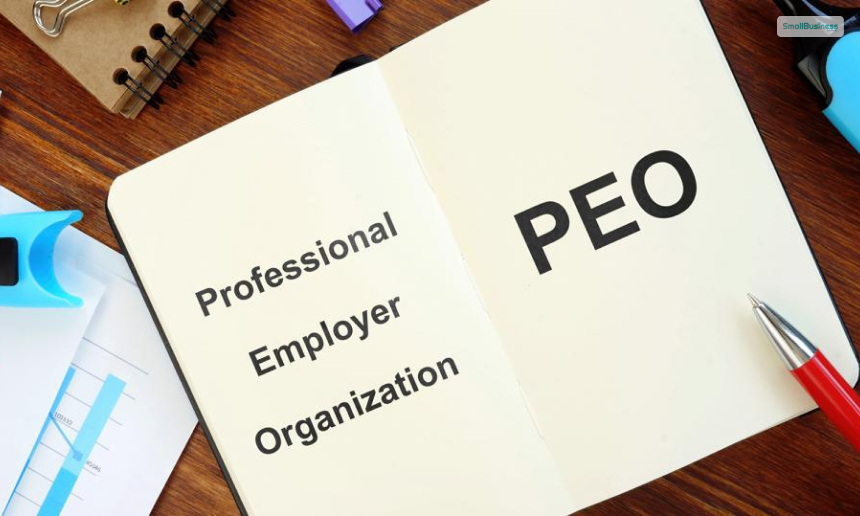PEO stands for Professional Employer Organization. These organizations help small and midsize businesses and their staff access tools, services, and benefits for growth. However, everything has its pros and cons. Hence, if your small business is trying to choose a professional employer organization, you will need to understand how they work. You will also need to learn their importance as well as the benefits these organizations provide.
In this article, you will learn about professional employer organizations and how they work in general. In addition to that, you will also learn about the importance and benefits of PEOs. This will give you a better idea of what to expect. Finally, we will also discuss the major pros and cons of professional employer organizations. Hence, to learn more about PEOs, read on through to the end of the article.
What Is A Professional Employer Organization (PEO)?

According to the Forbes Advisor,
“A PEO acts as a co-employer that provides services for your business and its employees. It can allow you to outsource important HR functions, such as payroll, benefits, and training, while ensuring compliance with federal and state employment laws. By working with a PEO, you may free up your time and focus on improving your products or services and growing your business.”
However, the services of PEOs can change with the type of company. Each professional employer organization can offer its own lineup of services. While some professional employer organizations only offer basic HR services, others provide extra services with tools and analysis.
You will also need to understand here that a PEO does not handle your business. They are only responsible for HR-related tasks. However, the PEO will not be able to replace your internal HR team. They will work together with the HR team to handle complex situations and improve the situation of the workplace.
Furthermore, you will also need to work with a reputed and experienced PEO so that there is no disruption in the workplace. Moreover, when you work with the PEO, your employees’ paychecks will consist of the name of the company. Despite that, your employees will operate as usual.
How Does A PEO Work?

According to Investopedia,
“As a co-employer, the PEO becomes the legal and tax-related employer for the employees of all client companies. This allows the PEO to negotiate more expansive and less expensive benefits, workers’ comp, and unemployment insurance rates while offering state-of-the-art administrative services. The average client of a PEO […] is a small business with 19 employees.”
PEOs are also known as employee leasing companies. Small companies work on a contract with these companies. The PEOs are responsible for looking after certain administrative functions including taxes, payrolls, and employee benefits.
Due to various functions, the PEO becomes the co-employer. In the given arrangement, these professional employer organizations combine with employees of other companies. This helps these companies to bear lower costs, increase efficiency, and reduce paperwork. On the other hand, the companies are also able to provide better employee benefits like healthcare, retirement packages, and compensation.
However, a PEO needs to have, on average, 19 employees. PEOs do not work with those companies that have fewer employees. The employee count needs to be between 16 to 80. The services of PEO are priced based on the percentage of the company’s total payroll or the number of employees.
PEO’s Significance: How Will It Help Your Business?

According to Business News Daily,
“There are several advantages to working with a PEO, such as sustained growth and saved time. As your business expands and the demands of growth weigh on your day-to-day responsibilities, PEOs can take time-consuming, routine processes off your plate. […] These companies can be a game-changer for an SMB, helping it attract new workers and grow as a business.”
PEOs can offer a variety of benefits to small and medium-sized businesses. Some of them include:
1. Since PEOs know how to attract employees, they have better access to good employee benefits. They can provide this to your business at lower rates.
2. PEOs assist you with various taxation laws of federal and state governments for compliance, They also assist you with employee payrolls and benefits compliance.
3. You can save a lot of time and money by hiring a PEO since they do a lot of jobs on your behalf. You can, thereby, reduce your paperwork and allow the PEO to negotiate on various places on your behalf.
What Are The Pros And Cons Of PEOs?
The following are a few pros and cons of professional employer organizations that you need to understand:
Pros Of A PEO Or Professional Employer Organization
Here are some major pros of PEOs that you will consider benefitting from:
- They act as one-stop shops for HR services, where all you have to do is share your responsibilities.
- Your company will avail of better services when it comes to offering employee benefits since PEOs have better negotiation power.
- You can also get different expert advice from lawyers and HR professionals on their behalf. Thus, you can have broad access to experts who are in a better position to answer your questions.
Cons Of A Professional Employer Organization
Here are a few cons of PEOs that you will need to be aware of:
- In many cases, PEOs can take a higher price, depending on how many employees you have. The prices are complicated to calculate.
- You will have limited choice when it comes to insurance and benefit providers, as PEOs come with their chosen options.
Final Thoughts
Hope this article was helpful for you in learning about PEOs. Actually, a professional employer organization is a human resources company that works in contract with small and medium-sized businesses. They take over some of the major administrative functions, including payroll, taxes, employee benefits, offering tools, etc.
Basically, a PEO acts as a co-employer that offers the services to the business and its employees. If you work with a PEO, you will be able to free up your time and meanwhile focus more on improving your business. Do you have any more information to add regarding PEOs? Share your ideas and information with us in the comments section below.
Continue Reading:
- 10 Best Tricky Ways To Troubleshoot If Apple Pay Is Not Working
- Simplifying Tax Season with ZipBooks: How to Streamline Your Business Finances
- How Pabbly Revolutionizes the Online Marketing Landscape: A Comprehensive Review




tlovertonet
29 June, 2024
Wow, incredible blog layout! How long have you been blogging for? you made blogging look easy. The overall look of your web site is great, let alone the content!